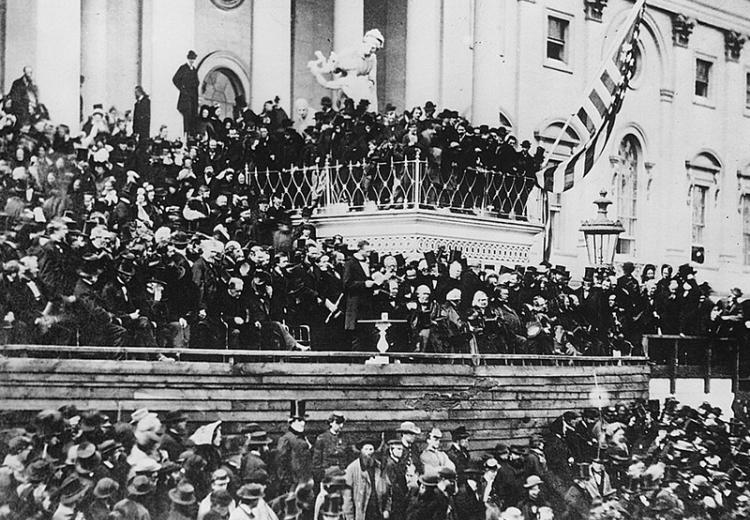Lesson 4: The Second Inaugural Address (1865)—Restoring the American Union

Photograph of Abraham Lincoln's second inaugural. Lincoln is at the very center of the picture surrounded by dignitaries.
"Mr. Lincoln, that was a sacred effort." So spoke Frederick Douglass soon after he heard Abraham Lincoln's Second Inaugural Address on March 4, 1865. The abolitionist orator/editor (and former slave) had met Lincoln only twice before, and for most of the war was a fierce critic of the president's policies. But he praised Lincoln's four-paragraph speech as sounding "more like a sermon than like a state paper." Lincoln's Second Inaugural Address was a surprisingly brief but profound reflection on the meaning of the Civil War that speculated on the purposes of God to help reunite the country.
This lesson examines Lincoln's Second Inaugural Address to determine how he sought to reunite a divided country through a providential interpretation of the Civil War and the magnanimous manner in which his speech sought not to find blame, but to give an interpretation to the Civil War that would help the nation to heal.
Guiding Questions
How did Lincoln seek to restore the American union as the Civil War drew to a close?
Why were Lincoln's tone and rhetoric important to the process of reunification?
Learning Objectives
Describe the historical context for Lincoln's second inauguration as president.
Analyze the motives of Senator Charles Sumner and the schism within the Republican Party following Lincoln's reelection.
Examine the mood of the South as reflected in Confederate President Jefferson Davis's rhetoric in early 1865.
